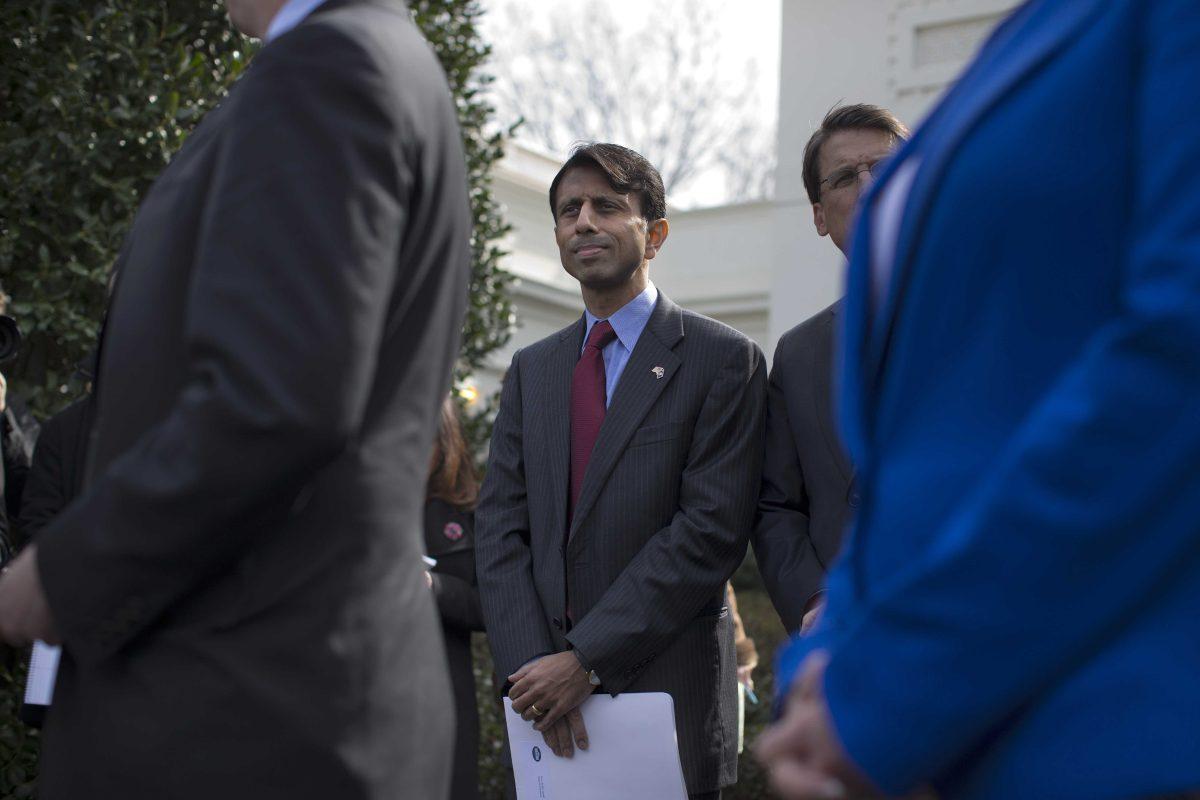In the virulent vacuum that American politics has become, reality is merely a concept.
If you think about it, this state of being makes sense: Facts are too boringly concrete. They’re depressing.
In fact, I’d much rather be lied to than face the cold, hard truth regarding something that has occurred or is actually the case.
This is precisely the reason why I love Gov. Bobby Jindal, because his policies are literally never aligned with what is going on.
He lives in a fantasy world. An intellectual bubble, if you will.
Though many of Jindal’s delusions are quite obvious, it’s vitally important that we acknowledge the convenience and utility they bring to the table. For instance, you should be especially grateful to Jindal for his vehement denial of climate change.
I mean, where does the liberal media get off gathering this irrefutable “evidence” for a warming planet? It’s upsetting.
And how can you possibly expect the Koch brothers to turn a profit if they have to comply with burdensome regulations meant to preserve our environment?
Thankfully, Jindal — a Brown University graduate — has an answer. Jindal recognizes that “global warming alarmism” is a hoax concocted entirely by a vast group of scientists attempting to “further extremist political agendas that are opposed to capitalism and in favor of population control.”
Recently, Jindal proved his delusions further. This time on economics, in particular, Jindal is devoted to implementing supply-side fantasy policies for the people in Louisiana that essentially make the rich, well, richer.
Consider the following facts. The poverty rate in Louisiana rose last year to 20.4 percent — a 1.7 percent increase, making our state the third poorest in the nation behind New Mexico and Mississippi, according to new census data released in September of last year.
The most egregious aspect of the census data highlights how the share of children living in poverty posted an increase to 28.8 percent.
Additionally, racial disparities remain grossly prevalent in Louisiana. While 13.1 percent of white Louisianians lived in poverty last year, more than one-third of black Louisianians were poor in 2011.
What does this data indicate?
Our state’s increasing poverty numbers demonstrate that Louisiana is on the wrong economic track.
With a growing share of the state’s residents in poverty, our current socioeconomic status speaks to the need for policies that give relief to working families and provide a pathway out of poverty.
However, Jindal has, in effect, completely ignored the economic importance of this poverty data. He is pushing a plan that would further widen income disparities in the state by eliminating nearly $3 billion in personal and corporate income taxes and replace the lost revenue with higher sales tax.
Jindal is proposing this because he thinks an absence of state income or corporate taxes will lure businesses into the state.
State income tax falls most heavily on the affluent, sales taxes fall most heavily on the poor and middle class.
In fact, the Institute on Taxation and Economic Policy, a
nonpartisan think tank, concluded that the “overall shift in tax liability is so dramatic that the plan is virtually guaranteed to have a regressive impact regardless of whether or not a low-income relief program is added to the package.”
Put in concrete terms, ITEP found that the bottom 80 percent of Louisianians in the income distribution would see a tax increase. Conversely, the largest beneficiaries of the tax proposal would be the top 1 percent, with an average income more than $1 million, who’d see an average tax cut of $25,423.
Jindal thinks this tax cut will produce economic growth. Essentially, it’s trickle-down economics.
There is no empirical basis for the view that cutting taxes on the wealthy leads to economic growth, according to a recent study by the nonpartisan Congressional Research Service. This is a prime example of Jindal refusing to use evidence to shape policy.
So, the actual effect of Jindal’s plan will be to take money out of the hands of ordinary Louisianians and give it to the state’s wealthiest individuals and corporations.
For a state that already suffers from so much poverty, income inequality and racial disparities, this is a catastrophe in the making.
Just another day at work in Jindal’s intellectual bubble.
Jay Meyers is a 20-year-old economics sophomore from Shreveport.





